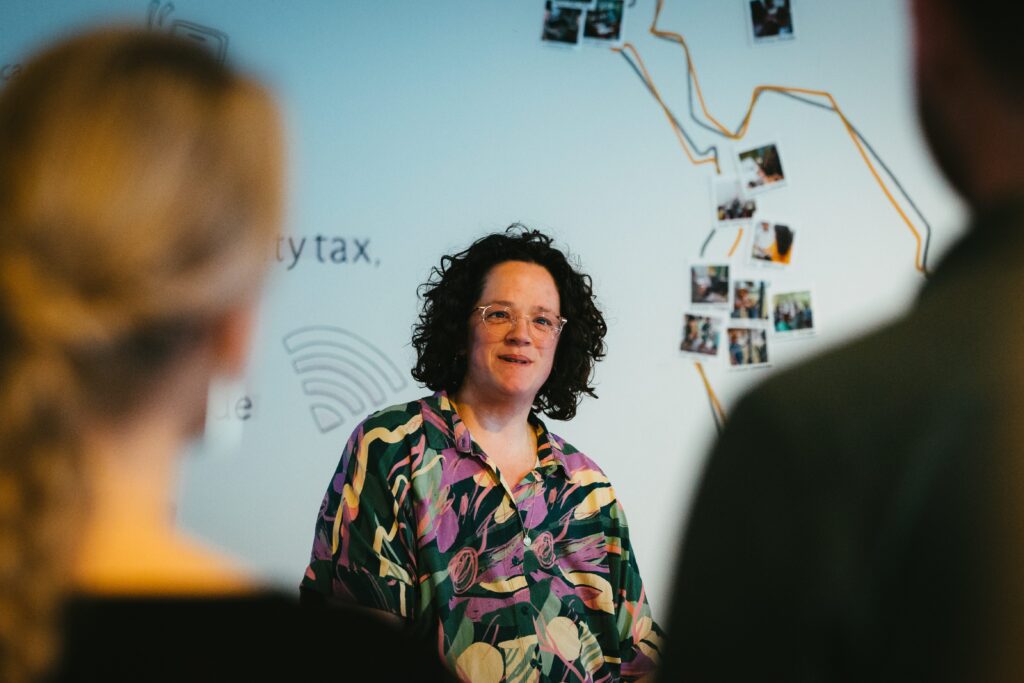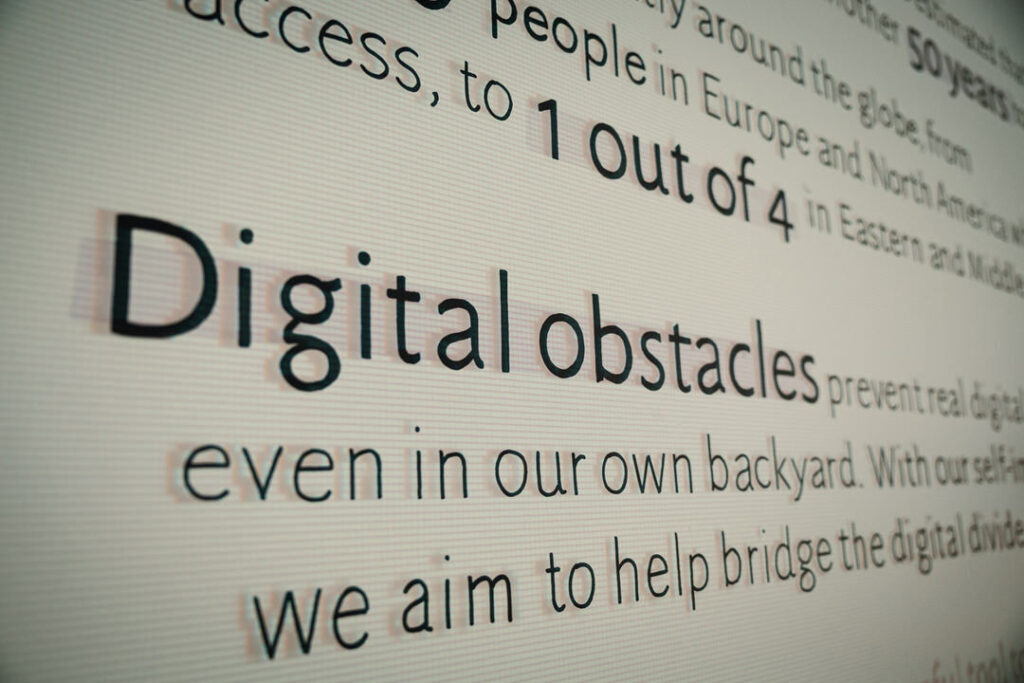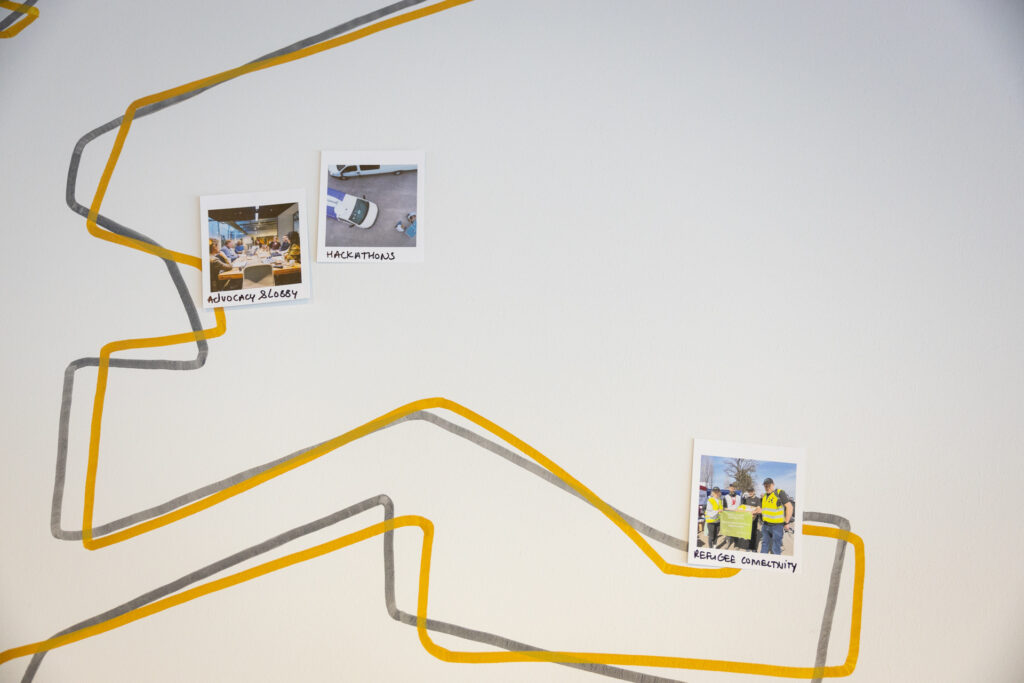Strengthening connectivity close to home
We talked to Pollien about her experience and drive for setting up a regional Digital Inclusion Pilot Project in the Netherlands.


We are on a mission to bring equitable and affordable connectivity to everyone globally. When looking at how we can help, we put a focus on the word equitable because the perfect solution for one community or group of people might not work for another group. The shape and form of the connectivity doesn’t matter as much as the fact that those people have sufficient access. And once the connection is there, it also needs to be affordable for the people who are supposed to use it.
Because access to connectivity is not a given everywhere, we are really excited that an idea we have had since the creation of 48percent.org is being realized. We recently announced the start of a pilot project in different areas of the Netherlands to test a regional approach to bringing not only affordable internet but also digital skills and resources for people that for one reason or another don’t have the same access as their neighbors. In this blog post, we share why this is a project near and dear to our hearts.
Building a partnership with people who also see the problem
The idea to create a project to give people support for internet access and digital skills has been around as long as 48percent.org has been a foundation. It came during our first talks with organizations working on digital inclusion, and the idea stuck, so we decided to see how we could make it a reality. Little did we know that it would take multiple years, but some ideas need longer to mature and grow.
A project or initiative of this size wasn’t something we could do on our own, so Pollien, who was the person from our team who spent the most time on this project over the years, started looking through the Voys network to see who else might want to help. First she approached Freedom Internet, a social internet provider that we thought might jump at the idea to give back, and sure enough they did. She also looked for a partner that had access to the people who would benefit from this kind of project, and connected with the municipality of Westerkwartier. This was a start, but not enough.

Adding the missing link to make this project sustainable
With the 3 organizations working together, we could easily do a pilot for 50 households and provide internet for a year. But what happens after that? If we don’t tackle the root problems, they won’t suddenly disappear. One root problem is a lack of cooperation between the different partners involved, as well as the different levels of government. And if this isn’t there, the structural support for digital skills doesn’t happen.
To increase cooperation we looked for more partners, and Pollien found another partner: the Alliante Digitaal Samenleven (ADS). As it turned out, they were looking to do a similar project in different municipalities, all working around the idea of helping people be more digitally included. Once we joined forces, the project was started over the scope grew to include more municipalities.
The definition of success
Another project partner is the University of Twente, who has a center for digital inclusion. They are researching and monitoring the impact of the project to see if a regional approach is effective and matches the expectations and needs of the participants. But one major question that we had to answer in the project group was “what is success?” It’s easy to attach success to data, or financial consequences. But if we are trying to fix the root problem, which is cooperation and support, then we should be looking at what improvements the participants saw in their life because of better internet access and the resources to strengthen their digital skills. “Improvements” is a broad term, and that is okay.
We want people to feel more included and more able to participate. That is unique to each participant, which takes us back to the core reason of why we focus on equitable over equal as a foundation. If we look at if and in which ways the lives of the participants have changed or improved, we can use that information to further develop this approach and project for the future, so that eventually we can make something like this structurally available for everyone in the Netherlands.

Why digital inclusion is necessary everywhere
Overall the Netherlands has a high connectivity rate, which according to recent data is 97%. However, that is just a number. We need to let go of the 97% statistic because it doesn’t tell us enough. We don’t know if the connection they have works properly and is enough for everyone in the household. We don’t know if people can use that connection sufficiently and if it is affordable. As it stands, internet prices are expensive for those who don’t have a lot of extra money to spend, and if we want the internet to be part of the public infrastructure, then the prices need to reflect that.
Our ultimate goal is to have an equal society, and to participate in society today, you need to have both the access and knowledge to be on the internet. This fact is true regardless of which country you are in, which also makes a project like this impactful and necessary.
The ultimate goal – internet as a part of the infrastructure
A big element of this project is that for the first time, a lot of different organizations that are necessary to strengthen digital inclusion are working together, which contributes to solving the root problem with inequitable access in this country. This is a moment for those different groups to talk to each other, hear from each other, and learn from each other what is necessary to fully support people and become more digitally inclusive.
There is also awareness building happening, and the understanding that it is not just about an internet connection. It’s not just about having a router in your house and plugging a cable in it. That’s a building block of it, a very important one and very important that we make that socially affordable. But it has to work together with a decent device and the skills needed to use it. And all of this leads to awareness that people need to be motivated to use the internet. Because more and more, the internet is a necessity to participate in society, just like other utilities. The pandemic really opened a lot of people’s eyes to that. Knowledge, motivation, and acceptance all need to be nurtured and encouraged, and that happens when everyone agrees that the internet is a vital part of our society, and our infrastructure.